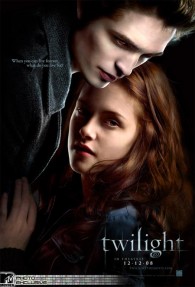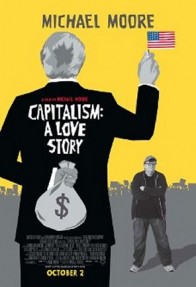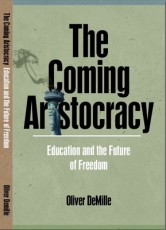 In the last few years, as the vampire genre has gone from cult popularity to fringe and then to mainstream and mega-bestseller, I have wondered what vampires signify to our culture.
In the last few years, as the vampire genre has gone from cult popularity to fringe and then to mainstream and mega-bestseller, I have wondered what vampires signify to our culture.
The bestseller vampire story Twilight and its sequels swept American teen reading circles, and these books were also read by a lot of adults. When the movie came out, millions watched and book sales once again soared.
Knock-offs followed, and vampires are now a rapidly growing part of American pop culture. From libraries and bookstores to HBO and regular network channels to the movie theaters, vampire stories are growing in popularity and quantity.
This mainstream and even super-stream popularity of vampires is new to America. Even relatively obscure vampire works are now more popular than the highly-touted Dracula was in a past generation.
Heroes & Villains as Cultural Indicators
You can tell a lot about a culture by its heroes as well as its villains. Cowboys were the quintessential American heroes — leading sales of fiction books, movies and television programs for the bulk of the 20th Century.
Over time westerns evolved into science fiction and fantasy — fans were entertained by space cowboys, space shuttles and alien cultures rather than ranchers, running horses and various tribes of outlaws or Indians. Star Wars, Star Trek, Lord of the Rings, Narnia and so many others featured cowboy plots and characters albeit in new, unique and often fantastic settings.
Later, Americans adopted professionals as our heroes — mostly police officers on television and in movies, followed by doctors, with some lawyers, nurses, politicians, military pilots, firemen and even a few teachers thrown in to the mix.
Like cowboys and space heroes, the professionals met life head on, faced down and overcame difficulties, and showed the rest of us how to live in difficult times. They conquered enemies, lived their genius despite annoying bosses, solved difficult situations, and inevitably they all faced and mostly triumphed over deep personal weaknesses and crises.
Most of these heroes followed the patterns laid out by Shakespeare’s 22 major and numerous minor plotlines, and unique characters from MacGyver, Remington Steele or James Bond to Joan of Arcadia, the Cheerleader on Heroes or Hancock kept fans coming back for more.
Like Plutarch’s Lives, a series of stories that were widely read and studied closely by the American founding generation, nearly all of these pop heroes followed basic heroic patterns — think Hercules or John Wayne.
Vampires: A Different Mold
Vampires are different. They don’t save, they kill. They see themselves as superior, and secretly hold power over the lives of unsuspecting “normals.” They are the opposite of Men in Black; they are not cowboys or even outlaws but something altogether different.
Outlaws were at least the equals of the law-abiding cowboys, whereas vampires are entirely above and even beyond the law.
Back to my original question: What deep societal meaning(s) do vampires manifest? Or more to the point, what profound cultural theme(s) does their popularity indicate? They are too popular not to mean anything.
It is a real question. After all, cowboys, Starship captains, Jedi Knights, comic-book heroes, fantasy kings in hiding (who always carry swords with names), modern homicide detectives, CSI experts, sacrificing attorneys fighting for the little guy, skilled and romantic doctors, caring nurses, inspiring inner-city teachers, top gun pilots and so many more all fit the same heroic model.
But vampires? They are a different plotline, any way you look at it.
Then it clicked. I was researching the growth of class divides in America, and came across a reference in an ad for Harper’s magazine that asked if capitalists and vampires are the same, or something to that effect.
My mind was racing. Vampire. Capitalist. Upper class. Aristocrat.
Blood-Sucking Aristocrats
 Note that I am not equating capitalism with bloodsucking. But let’s be clear — that analogy is widely accepted in our time.
Note that I am not equating capitalism with bloodsucking. But let’s be clear — that analogy is widely accepted in our time.
It’s probably obvious to everyone but me that the growth of vampire-lit popularity coincided precisely with the Enron and following meltdowns of big business credibility.
I think the analogy is a stretch, and I think we are witnessing too little free enterprise rather than too much. I do believe that the worst types of aristocracy are vampirical in nature.
The parallels are numerous. Bloodsucking, powerful beings live and prosper by taking our very means of life from us. We have no power to fight back — they are too fast and powerful. We don’t even know what hit us when one of them attacks.
In such a situation, we are “lucky” to receive a mention of our demise in the newspaper.
Oh, and it turns out that there are bad vampires and good vampires. The good ones find other ways to feed themselves, leaving us mere humans our blood. These ones are our friends.
By the way, this separates American from European vampires. The old-country variety are much more ruthless and, frankly, the bloodier the better.
In contrast, Americans like their vampires to be “vegetarian” like the heroes in Twilight or HBO’s True Blood. Oh, and while European vampires are villains, in America the great heroes are the good vampires who protect humans from the bad vampires.
Reread the last few paragraphs and insert the word “aristocrat” wherever it says “vampire” to see how apt the analogy is.
A Recipe for Apathy & Dependence
The similarities continue. For example, the regular people feel that there is nothing you can do about “them.” “They” control everything, anyway, so why try to make a difference?
The only way to compete with them or fight them is to join them, to become one of them, and that is done by having one of them bite you.
“It takes money to make money,” we are told, or “it’s not what you know but who you know,” or “your wealth and success will be the average of the top five people you hang out with — so if you want more money, get some wealthy friends.”
Here’s my favorite: “It’s just business, nothing personal.” This is the attitude of all the bad vampires in the literature.
Compare the reassuring thesis of the “good” vampires: “You poor people, of course you can’t save yourselves. Don’t worry, we’ll fix everything for you. Trust us. We’re the good vampires. Just go on with your lives. We’ll take care of you.”
This is aristocracy at its worst and worst. Bad aristocracy takes, manipulates, forces, feels and acts superior, and sucks away our life and livelihood. In contrast, “good” aristocracy takes care of us like the inferiors it thinks we are.
Some people seem to be saying, “Thank goodness for these good, caring, powerful aristocrats who fix everything so we can just live our lives.” Maybe that’s too sarcastic.
But seriously, the analogy is powerful and should make us think.
The System Sucks
One thing is the same in nearly all vampire stories: the vampires hate their life. Many of them despise what they are. Again, the parallel is profound. Few aristocrats enjoy their system. True, they prefer being aristocrats to commoners, but both groups want something better.
Free, prosperous societies that have learned how to function without the painful traditions of class division have always boasted much happier people. In short, aristocracy is not a great system for anyone — even the aristocrats.
This may be the most frequent theme in English, French, Spanish and Russian literature. And these cultures know aristocracy!
Traditional Horror v. Vampires
I know that vampire and other dark literature has been around for a long time, but it has never been mainstream in America like it is now. In fairness, I am not a fan of any kind of horror. In fact, I don’t remember watching a horror movie since I was in high school.
I just don’t appreciate the darkness. I think movies should be uplifting and inspiring. Happiness is our deepest quest in this life, and I want my entertainment to directly help with this goal.
There is, of course, classic literature like Dracula, Frankenstein, Doctor Jekyl and Mr. Hyde, and a number of plays by Shakespeare that deal with dark themes, but in all of these the overwhelming messages are about overcoming temptations and inner weaknesses. Tolkien and C.S. Lewis followed this pattern.
Modern horror, however, seems to be all about the shock value. But I don’t think that most horror movies are about aristocracy.
Vampire works, in contrast, at least the recent stuff that is incredibly popular, are all about how we are starting to notice an upper class growing in the shadows, increasingly perceptible but not yet out in open daylight, and that seems to control so much and be incredibly powerful, mysterious and even scary.
Instead of calling them all villains, as the Europeans do, Americans are hoping that the “good” aristocrats will protect us against the bad ones. And more and more we are hoping to “get discovered,” win a reality-show contest, hit the lottery, or in some other way get bit by success and join the upper class.
Surprised Parents in a Fourth Turning
If this sounds overstated to you, you are in good company. A couple of years ago I mentioned the growing popularity of vampire literature to a group of very involved and caring parents. They were surprised at the topic, and in fact it only came up as I attempted to answer a question posed by a seminar attendee.
 When I asked them how many of their kids were reading such works, only a couple raised their hands. I assigned them to go home and ask their kids that night about it, and to report back the next day.
When I asked them how many of their kids were reading such works, only a couple raised their hands. I assigned them to go home and ask their kids that night about it, and to report back the next day.
The following morning, it was a surprised group — nearly all the attendees had learned that their children were reading about vampires.
When I got home I told this story to my own kids, mainly to teach them about the struggles of raising kids in some urban area. My oldest three teens started laughing.
“What?” I asked. They had been discussing a popular vampire series the day before I got home. They pointed out a lot of good lessons they had learned from their reading, and I read the books and had some long talks with them.
I would never have assigned these books, and I likely would have discouraged them from the series if I had known sooner what they were reading. Still, we had some positive discussions, and in fact it was this experience that got me wondering why so many youth are now in to vampires.
Welcome to the fourth turning. The youth want the power, speed, mystery and freedom of being entrepreneurs and part of the upper class. They also want to help the world, to increase freedom, peace and prosperity.
Those in the Y Generation (born between 1984 and 2007) don’t want to be Company Men. They want to be The Man, but a nice version of him. To them John Wayne is too selfish and mean, Luke Skywalker is too independent and insecure, and the CSI cops are too poor, bureaucratic and lonely.
That leaves two choices: Be a good vampire, or be the true friend of one. Consult the overwhelming bestseller Twilight and other popular vampire plotlines and characters to find out how to be good at these two roles.
Can We Defeat the Vampire Aristocrats?
 Aristocracy is coming to America, and joining it or working for it is the most popular career of the future — unless, of course, regular people can drop their fear of the aristocrats and stand up wisely and effectively for freedom.
Aristocracy is coming to America, and joining it or working for it is the most popular career of the future — unless, of course, regular people can drop their fear of the aristocrats and stand up wisely and effectively for freedom.
To do this, they’ll need the type of education that has always trained leaders — from the aristocratic leaders of Europe to the citizen leaders of America’s first 150 years.
There really is a difference between those who deeply know the classics and those who don’t. History is clear on this point. When only a few really know the classics, an aristocracy always dominates the people. This upper class controls, oversees, manipulates and lives off the blood, sweat and labor of the regular people.
When, in contrast, many study and apply the classics, they elect and oversee their leaders and vigilantly replace them when needed — freedom is maintained and flourishes. It is really that simple.
When the people are as fast, strong and wise as their leaders, no bloodsucking is allowed. When bloodsucking becomes the nature of hero and villain alike, and the young want to be one or the other — anything but the weak, oblivious masses described in Harry Potter and Twilight — a society is in trouble.
We are such a society. The classics are the answer. Unfortunately, telling the youth this is akin to the zealous but impotent religious preachers who fail in most vampire tales.
Youth believe what they are shown, and it is time for two generations of adults to get past their conveyor-belt education hangovers and finally set the example of getting the kind of great education necessary for a free people.
If this is too much for our generation, we might as well bare our necks and welcome the aristocrats.






I found this article becuase i searched for it on google because i knew it had tO be out there sonewhere. I am fully behind this idea that vampires represent aristocracy, more specifically a wealthy class that not only has money but understands cultural and it’s importance and upholds a certain reverence for thing which seem to be to the normal American in important assets. It fits in with bourdieu’s notion of cultural Capitol. I do not believe that these vampires merely represent those who have monetary Capitol but those who also posses a more nuanced trickier form of Capitol which is that of the cultural. It is not coincidence that vampires are presented with a fashion sense which is very much in line with the fashion world and high society people who employ fashion as a means of power( fashion is a prime example of cultural Capitol, high society / old money aristocrats hold a key to power over new money by knowing all the ins and outs and particularities of fashion and an understanding of wealth throughout history.) it is also no coincidence that vampire popularity has come alongside with the popularity of hipster or indie the notion of which is understould by most every at least highschool child while their parents are not even aware of the notion of hipster ( parents, Wikipedia hipster- it even includes a cultural critical analysis section) also the notion of vampires as being of a secret society that has existed through out the ages is online with the reality of wealthy families which have maintained wealth and cultural Capitol some even with connections that go back to wealth aquired in the middle ages and who knows even what families have maintained social position since even before that. Such histories go often undocumented and taken for granted but despite Americas claim to equal opportunity I think one will find that more often than not those with real control ( both monetary and cultural) did not just grow from the virgin American soil but have deep roots in forgotten histories of power and control. To think that the founding Americans who were so literate and engrossed in ethical and spiritaildebate which dates back to the Greeks . And who were the Greek philosophers who framed the concepts of upon which western academia, law, art, ethics and science were founded but aristocrats from wealthy families who had the luxury of recsource to spenI am fully behind this idea that vampires represent aristocracy, more specifically a wealthy class that not only has money but understands cultural and it’s importance and upholds a certain reverence for thing which seem to be to the normal American in important assets. It fits in with bourdieu’s notion of cultural Capitol. I do not believe that these vampires merely represent those who have monetary Capitol but those who also posses a more nuanced trickier form of Capitol which is that of the cultural. It is not coincidence that vampires are presented with a fashion sense which is very much in line with the fashion world and high society people who employ fashion as a means of power( fashion is a prime example of cultural Capitol, high society / old money aristocrats hold a key to power over new money by knowing all the ins and outs and particularities of fashion and an understanding of wealth throughout history.) it is also no coincidence that vampire popularity has come alongside with the popularity of hipster or indie the notion of which is understould by most every at least highschool child while their parents are not even aware of the notion of hipster ( parents, Wikipedia hipster- it even includes a cultural critical analysis section). Hipster’s most importantly understand thd importance of cultural capitol ( the way you dress, the obscure eclectic knowledge about art history philosophy etc and a focus on art, design, music and or academics. The hipster is the everday aristocrat and even within hipster there are vast levels of nuances and societal structure. also the notion of vampires as being of a secret society that has existed through out the ages is online with the reality of wealthy families which have maintained wealth and cultural Capitol some even with connections that go back to wealth aquired in the middle ages and who knows even what families have maintained social position since even before that. Such histories go often undocumented and taken for granted but despite Americas claim to equal opportunity I think one will find that more often than not those with real control ( both monetary and cultural) did not just grow from the virgin American soil but have deep roots in forgotten histories of power and control. To think that the founding Americans who were so literate and engrossed in ethical and spiritaildebate which dates back to the Greeks . And who were the Greek philosophers who framed the concepts of upon which western academia, law, art, ethics and science were founded but aristocrats from wealthy families who had the luxury of recsource to spend their time considering philsophical matters. d their time considering philsophical matters.